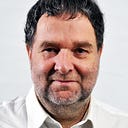Refugee Integration, the Point of No Return
The basic principle of asylum is to offer displaced people shelter until they can safely return home. Unfortunately, for people coming from war-zones, this can in practice take many years or often even decades. Mostly not seeing any perspective at their places of origin, such long residency logically generates expectations. Refugees anticipate that they are entitled to stay indefinitely in their host country and try to rebuild their lives and create a better future for their children there.
The current political developments in Denmark and Austria show the opposite tendency though; there is a clear shift from a focus on integration to one of return. Further, also in other EU member states, family reunification is hindered or people are outright deported to clearly unsafe areas.
Despite the fact that European countries can demographically and economically benefit from migration and from allowing refugees to contribute to their societies, offering the newcomers permanent residency or citizenship currently fully depends on the individual country’s willingness to do so. However, even without legally binding international obligations, involuntarily sending people back after they have become long-time contributing members of a society is from a moral perspective unacceptable. This implies that if policies change towards targeting the return of people, measures must be taken to facilitate this process, making it as smooth and as voluntary as possible.
The paradox is that the “better” refugees are assimilated in their host country, the more difficult it will be for them to re-integrate in their “home” country. The wider the gap between the culture of origin and the host country is, the younger the refugees or their children were upon arrival and the longer their stay has been, the more problematic returning becomes. A good illustration is a situation in The Netherlands, where some children of asylum seekers grew-up for nearly a decade before their asylum applications were rejected.
The current confusing blend of “integration and return” is detrimental for everyone involved; permanent insecurity is the last thing vulnerable people need. Regardless of political climate, host countries must define clear paths for refugees. This means to either focus on integration and grant citizenship or to target return, implying active preservation of the refugees’ culture of origin and accepting “non-assimilation”. Ideally, refugees should have a choice between the two alternatives and optimize both their personal development and their contribution to society this way.
Preservation of one’s own culture does not exempt anyone from the need and obligation to learn the host’s language and to behave as respectful guests though; “non-assimilation” does not equal segregation. Consequently, the refugees’ wait abroad includes tasting the host’s culture and develop affinity with it. Not assimilating may at first sight seem to be contradictive and limit the refugees’ contribution to a host country society. However, besides the fact that granting asylum is not based on one’s labor market potential, ample measures can be taken to avoid exclusion and stimulate participation.
On average, it currently takes five years of welfare dependency before refugees can connect to their European host country’s labor market. Spending these years residing in high living cost urban areas often limits the host country’s investment budget in their education. Refival therefore proposes to incubate refugees in lower-cost rural communities and invest in their personal development instead of spending huge sums on urban housing. Once connected, people can move to cities, stay in the countryside or over time return home. Since many European rural areas face decline, as a spin-off, there is clear synergy to be achieved between hosting refugees and countryside revitalization.
Other than cities, where segregated parallel societies easily flourish, smaller communities possess intensive natural levels of interaction and thus offer better chances for cultural participation. Although rural populations may seem conservative and frequently consider outsiders to be intruders, they at the same time highly value contributions to their community and quickly accept people who engage as members. The now halted successful rural village revitalization example of Riace in Italy clearly shows the social feasibility of Refival’s refugee incubation approach.
Since the sustainable rural development advocated by Refival is strongly Internet education and Internet employment driven, there are many options to allow “non-assimilation”. Hybrid learning can include a fully individualized curriculum and can, if needed or opted for, be dominantly or entirely taught in the native language of the refugee. Students can freely optimize their personal targets. Remote, Internet based, employment is further also not dependent on geographical location and can thus be initiated from anywhere, often including the “broader regions of origin” of refugees. Finally, “rural globalization” is not based on working or studying from home. It is the community rather than the individual that should be connected and included. Physical schools are an essential part of hybrid learning, whereas co-working centers can be strong catalysts for employment type job-creation.
Refugee participation is of course not a one-way street; it requires openness and mutual adjustment from refugees and their host’s society. Key to successful inclusion is to fight dissociation and segregation, both at a society as well as at a personal level. However, developing empathy does not require assimilation; it is based on the “opposite” ability, namely to understand and respect differences between people. As long as there is willingness to interact and to stimulate each other and as long as common languages are learned, a society can remain multi-lingual and multi-cultural.
Refival is urgently seeking for equal-minded people to replicate and further improve the achievements of Riace by developing structural personal development solutions for refugees in synergy with economically sustainable rural revitalization in Europe. If you are passionate about the ideas Refival stands for and are willing to contribute or are aware of organizations that could fund projects, please contact me.
